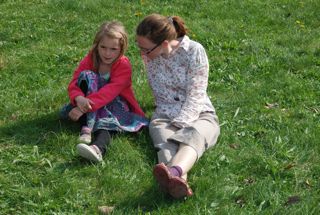How EUDEC Defines Democratic Education
The basis of democratic education is in certain rights of students, which EUDEC defines as follows (based on the 2005 Resolution of the 13th International Democratic Education Conference (IDEC), Berlin, Germany):
In any educational institution, students have the right
- to make their own choices regarding learning and all other areas of everyday life. In particular, they may individually determine what to do, when, where, how and with whom, so long as their decisions do not infringe on the liberty of others to do the same.
- to have an equal share in the decision making as to how their organisations – in particular their schools – are run, and which rules and sanctions, if any, are necessary.
Democratic education is defined by this organisation as education conducted in keeping with the above Resolution.
Democratic Education
Democratic education is education which most appropriately meets the needs of the learner, the community and society. It does this through developing reflective individuals who are collaborative problem-solvers and creative flexible thinkers. Just what the world of constant political turmoil and emergent technologies needs.
Democratic education can apply to learners of all ages in any learning environment. That said, a significant focus is placed on democratic schools and children as that is where a lot of the formal education in our societies takes place. These schools are communities where Article 12 of the UN convention on the rights of the child, which states that children have a right to have a say on matters which affect them, is fully realised.
These learning communities, whatever they are, whoever they are for, are all unique from each other. They each populate their own place in the dome or spectrum of diversity within democratic education practice.

And, in this individuality they all share the following elements:
- Firm foundations in a values culture of equality and shared responsibility. Respect breeds respect. Trust breeds trust. Compassion breeds compassion. Tolerance breeds tolerance. Listening breeds listening.
- Collective decision-making where all members of the community, regardless of age or status, have an equal say over significant decisions such as school rules, curricula, projects, the hiring of staff and even budgetary matters.
- Self-directed discovery; Learners choose what they learn, when, how and with whom they learn it. Learning can happen inside or outside of the classroom, through play as well as conventional study. The key is that the learning is following the students intrinsic motivation and pursuing their interests.
